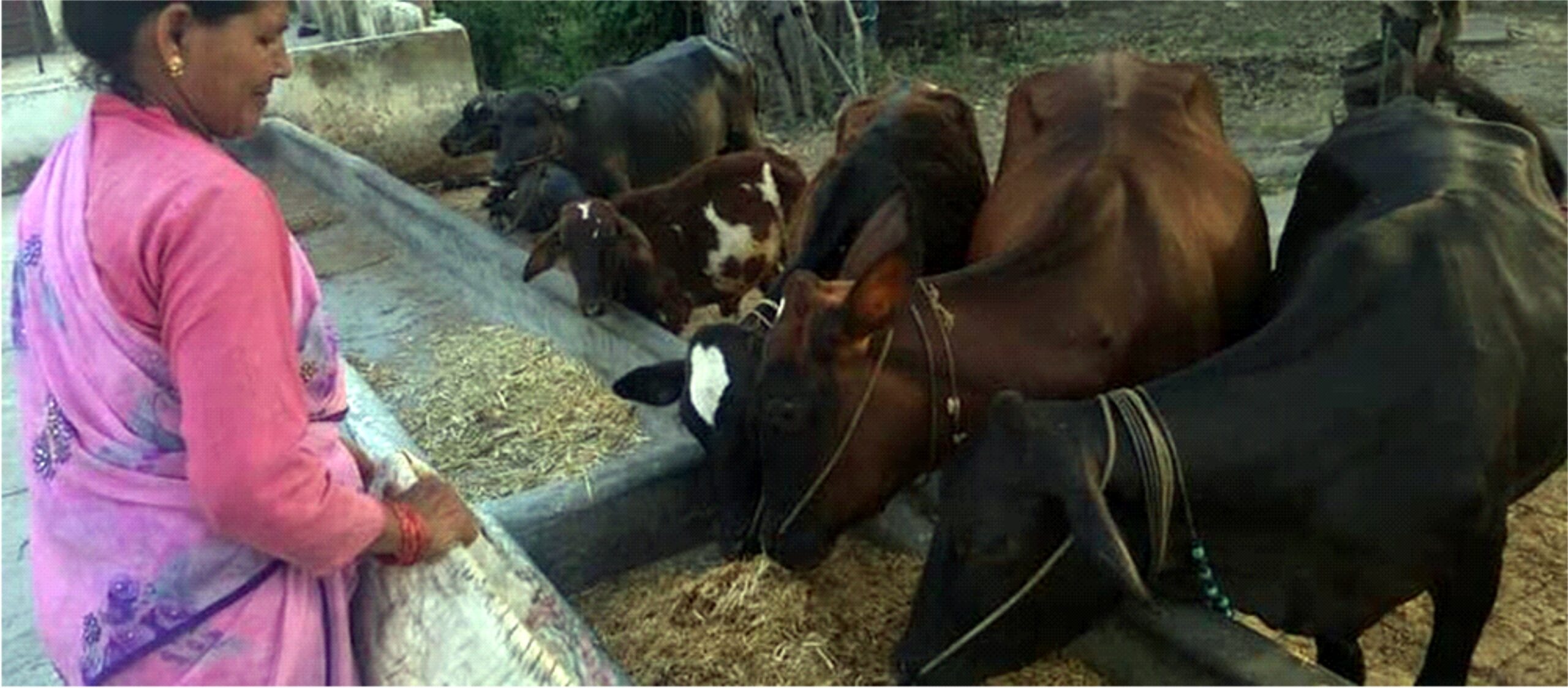Agriculture
Sweet Potato Has Food Security
An agronomist, Dr Jude
Njoku, has described the sweet potato as a versatile crop that should be explored in order to add to the food security needs of the country.
Dr Njoku who was speaking on an NTA programme recently on the economic potentials of the crop said apart from the high nutritional value it also has a long storage period compared to other crops.
He said while cassava stays in the soil for up to 12 months and above, potato matures in three months time and could strive under marginal dry land.
The agronomist called on households to engage in cultivation of potato for their consumption and economic well-being.
“So the household can cultivate sweet potato for consumption and still make an income.
“Instead of looking for vitamin A which you cannot afford, if you eat sweet potato you can get vitamin A,” he said.
He said the sweet potato was quite amenable to certain conditions especially in inter-cropping even as he said it’s cultivation needed spending less and getting more.
To ensure food security in the country according to him, farmers needed to be encouraged in the areas of infrastructural development.
He decried the poor state of most roads leading to farms in the country which has made farmers to spend their income and time in transporting their produce from places of production to the markets.
While calling for the building up of the sweet potato food value chain he also advocated for a presidential intervention as was done on cassava.
“Just as there is a presidential statement on cassava that 10% of fission for wheat, such statement can still go for potato,” he said.
According to him, it was only when a farmer goes to his farm and invests sweet potato and made money that he can continue to grow the crop.
He said one of the advantages of potato was that it grows wild in every part of Nigeria “so every home can grow it and besides the leaves can provide your vegetable needs.”
On the proper way of handling the harvested potato, Dr Njoku said care must be taken in order to avoid damage.
He said injury to the harvested crop could lead to infection even as he said the harvested sweet potato should be cured for at least 16 hours.
This will enable it to heal and obstruct hydrogen from getting into the edible part of the potato.
Agriculture
Nigeria’s Agric Exports Face Rejections Overseas

The World Trade Organisation (WTO) says Nigeria has lost its leading position in the agriculture export markets because its agricultural commodities do not meet the sanitary and phytosanitary requirements of the foreign markets.
According to WTO, despite the abundance of arable lands and increased investments, the nation has transitioned into a net importer of farm produce that was previously cultivated domestically, undermining efforts aimed at ensuring food sustainability.
The Director-General, WTO, Ngozi Okonjo-Iweala, disclosed this in Abuja at the launch of seven trade support programmes initiated by the WTO-ITC to boost the development of Nigeria’s trade and industry standards.
The initiatives, namely the Standards Trade Development Facility, Digital Trade Initiative support, Women Exporters Entrepreneurship support, National Trade Portal and cotton development initiative, aim to provide technical support to strengthen food safety, animal and plant health capacity in developing countries, address challenges of e-commerce digital trade divide and establish a world-class technology centre for all trade-related data and information in Nigeria.
“We are launching today with STDF, ITC, and the NEPC, a project to help with international safety and quality certification for sesame and cowpeas or black-eyed peas.
“The agriculture sector in Nigeria has the potential to be a major driver of export diversification and job creation, but too much of this potential remains unrealized, due to a variety of barriers.
“In fact, Nigeria has not only lost out in agricultural export markets, it is a net food importer spending about billions a year on goods, many of which we can also produce here.
“Some of Nigeria’s unrealised potential has to do with trade-related problems on the supply side, and that is what this project is seeking to rectify”, the WTO DG stated.
Specifically, she said Nigerian cowpea and sesame exports were increasingly facing rejections in several destination markets due to non-compliance with international SPS requirements.
According to her, the failure to comply with regional, global and import country sanitary and phytosanitary standards has resulted in loss of sales, revenue, and hard currency due to export rejects.
Last week, the former Finance Minister charged Nigeria and other African countries to improve the quality of their shea exports to international standards.
She added, “Nigeria is the world’s largest producer and consumer of cowpeas. Sesame is primarily an export crop, and Nigeria is the world’s fourth leading producer, exporting to the EU, Türkiye, Japan, South Korea and other Asian markets.
“However, Nigerian cowpea and sesame exports have increasingly faced rejections in several destination markets due to non-compliance with international SPS requirements”.
She said for example, “Nigeria accounts for over a third of Japan’s sesame imports, but health and safety inspections during the past few years have found instances where pesticide residue levels were nearly double the maximum residue limits permissible from 2019 to 2021″.
Hence to tackle the challenges, Okonjo-Iweala said the WTO was partnering with relevant stakeholders to build the capacities of stakeholders across the sesame and cowpeas value chains to better understand market access requirements and improved agricultural practices such as pesticide application, hygiene techniques, harvest and post-harvest methods, and food safety.
She said the project, which would be implemented with $1.2mn funding, would improve the country’s non-oil export.
On her part, the Minister of Industry, Trade and Investment, Doris Aniete, said the Ministry was putting in place policies and mechanisms that would facilitate and enhance trade, while also removing all the bottlenecks hampering trade and investment.
She further stated that the Ministry had started rolling out the N50bn Presidential Conditional Grant Scheme through the Bank of Industry, targeting various economic players.
She added that a N150bn intervention through the FGN MSME and Manufacturing Sector Fund, providing low-interest loans that are pivotal for scaling businesses and spurring job creation would commence very soon.
“We are achieving this by facilitating a strong enabling environment for businesses to thrive, developing robust policies and reforms, increasing access to financing, widening access to global markets, driving investments, and creating job opportunities, all in line with the vision of Mr President.
“In 2024 we are focused on improving infrastructural capacity such as power and transport, as well as soft infrastructure such as transparent regulation, policy consistency, the rule of law, and a culture of efficient collaboration and synergy among various government agencies and offices.
“We believe this will facilitate an environment where business operations are not hindered by red tape but can continue to thrive”.
Also speaking, the Executive Director of the Nigerian Export Promotion Council, Nonye Ayeni, explained that the project, expected to last for three years, would enhance the quality and standard of sesame and cowpea through the institution of good Sanitary and Phyto-sanitary conducts.
She disclosed that in 2022, the worldwide value of sesame exports and its value chain amounted to $7.35bn, projected to surge to $9.27bn by 2032. Similarly cowpeas were valued at $7.2bn in 2023, with an anticipated rise to $9.43bn by 2028.
“This project, STDF 845, will therefore enhance the quality and standard of sesame and cowpea through the institution of good Sanitary and Phyto-sanitary conducts, Good Agricultural and Warehousing practices, packaging/labelling and excellent storage systems.
“All these are expected to forestall frequent contract cancellations and loss of business opportunities while allowing a significant increase in global acceptance of the items and for better quality of these products consumed locally.
“This project is designed to last for three years to enhance the integrity of the cowpea and Sesame value chain from Nigeria.
“Therefore, the focus lies on improved practices that will enable Nigerian stakeholders to comply with Maximum Residue Levels of selected pesticides used in Cowpeas and Sesame and Microbiological contamination with Salmonella (Sesame).
“Overall, it will improve the regulatory and control system as well as farming and processing practices applied for Cowpea and Sesame”, she concluded.
Agriculture
WOFAN Provides Health Care Services For Rural Women Farmers

The Women Farmers Advancement Network (WOFAN-ICON2), with support from MasterCard Foundation, and in partnership with Benson Colman and Associate Limited, has provided a “Lab-ulance” to support the healthcare system of a farming community in Gwarimpa Village, Federal Capital Territory (FCT).
This is part of its activities to mark this year’s International Women’s Day celebration.
The Lab-ulance is a tricycle fully kitted with medical equipment such as laboratory equipment, midwifery equipment, refrigerator powered by a solar system and other basic health equipment.
Executive Director of WOFAN, Hajia Salamatu Garba, while interacting with journalists at the unveiling of the programme, said the initiative was borne out of the concerns that farmers too need to be healthy before they can farm.
“It is the same thing that we are talking about and it is where holistic development is missing in Nigeria, because someone is farming doesn’t mean that after giving him fertiliser and seed, then you go and fold your arms, no.
“Farmers need to remain healthy before they can produce food for us sustainably. And if you look at the farming communities, they lack access to roads, healthcare facilities and so on. They can’t at first hand get services for their families.
“This was what brought the issue of Lab-ulance. These are youth that are working with WOFAN that decided to go innovative and come up with a very simple and affordable transport system that can also carry a doctor.
“In this Lab-ulance, we have the midwifery, we have the laboratory equipment, we have every equipment you need, including a refrigerator that is powered by solar system. This is the kind of development that we need in Nigeria”, Hajia Garba said.
She said it is ideal for every ward in Nigeria to have this system linked to primary healthcare and doctors would not be seen running away from duties because they have necessary facilities.
According to her, the women are required to pay only N2,500 as health insurance which will cover their husband and two children.
Agriculture
Expert Harps On Women Engagement In Livestock Farming

An agricultural expert, Dr Olufemi Bolarin, has called on women to fully engage in economic activities, including livestock farming, leading to increased productivity and resilience within the sector.
Bolarin, the Kogi State Coordinating Office of Livestock Productivity and Resilience Support Project (L-PRES), disclosed this in his welcome address at the Gender Training on Prevention of Sexual Exploitation Abuse and Harassment (PSEAH), Gender-Based violence (Do No Harm Training and the Signing of the Code of Conduct for Kogi L-PRES PIU).
According to him, “these are not just numbers, they represent the lived experiences of individuals, impacting their physical and mental well-being, their sense of security, and their ability to participate fully in the society.
“The livestock sector, which our project focuses on is no exception to these challenges in which case women play a significant role in the sector, yet they often face unique vulnerabilities including limited access to resources, decision-making power and protection from violence.
“Gender-based violence (GBV) not only inflicts direct harm on women, but also undermines their capacity to contribute meaningfully to the development of the livestock sector and society at large”.
He noted that addressing the problem of GBV is not only a moral imperative but also a strategic necessity for sustainable development.
He added that when women are empowered and free from violence, they can fully engage in economic activities, including livestock farming, leading to increased productivity and resilience within the sector.
“Moreover, empowering women in the livestock sector has broader implications for development. Women are not just beneficiaries, they are agents of change and key drivers of progress in their communities.
“Today’s training and the signing of the Code of Conduct represent a step towards creating a safer, more inclusive, and equitable environment for all.
“By committing to PSEA, GBV prevention, and Do No Harm principles, we are laying the foundation for a more just and prosperous future, where every individual can thrive regardless of gender.
“I extend my deepest gratitude to all our partners, trainers, and participants for their unwavering support and dedication to this cause. Together, let us work tirelessly to eliminate GBV, empower women, and build a brighter, more inclusive future for Kogi State and its livestock sector”, he stated.
In her remarks, the Permanent Secretary, Ministry of Agriculture and Food Security, Hajiya Lami Zaratu Lawal, commended Kogi L-PRES for the proactive steps taken to implement the Project in the State.
On her part, the National Gender Based Specialist of L-PRES, Mariam Ademu, said World Bank has zero tolerance for GBV, saying the training was to equip the Project Implementation Unit with the challenge of gender inequality.
In her presentation, the Executive Director, Challenged Parenthood Network, Ms. Eunice Agbogun, said Lack of access to land, cultural norms and social barriers, among others, are inimical to women participation in livestock farming, adding that empowering of women is key to reducing GBV in Nigeria.
-
Opinion2 days ago
Agriculture: Solution To Hunger, Inflation, Food Insecurity
-
News2 days ago
Pan-Igbo Group Hails Dangote Group For Reducing Diesel Price
-
Sports2 days ago
Minister Renews Hope For Sports Dev, Signs MoU
-

 Rivers2 days ago
Rivers2 days agoBayelsa LG Polls: BYSIEC Issues Return Certificates To Chairmen, Others
-

 Maritime2 days ago
Maritime2 days agoNPA Secures $700m Citibank Loan For Tin Can, Apapa Ports Rehabilitation
-

 News2 days ago
News2 days agoJAMB Sanctions Officials For Asking Candidate To Remove Hijab
-

 Opinion2 days ago
Opinion2 days agoCautious Optimism As Naira Rebounds
-
News2 days ago
Waive Tax On Electronic Imports, Women Engineers Appeal To Tinubu

